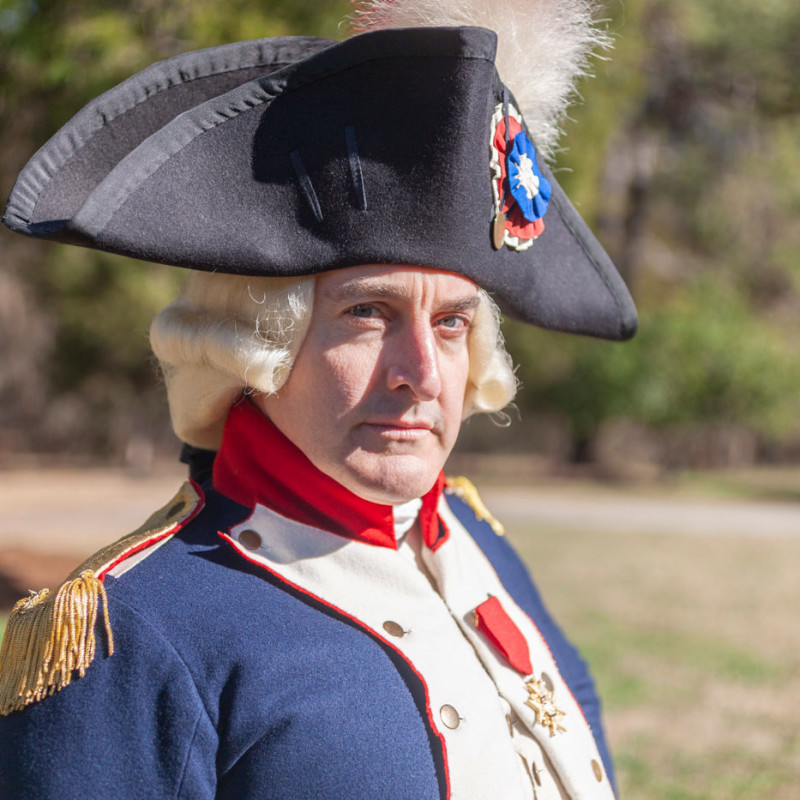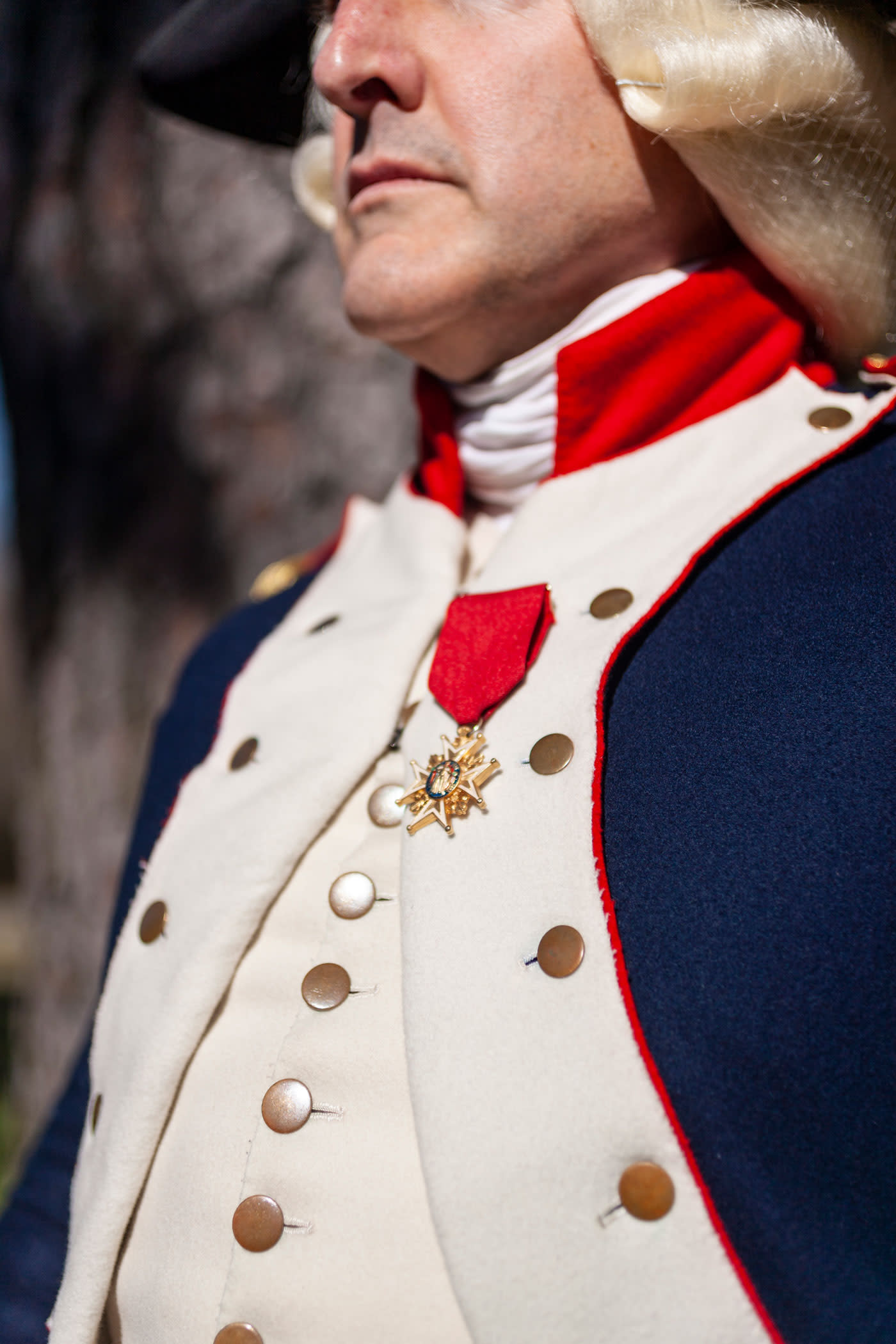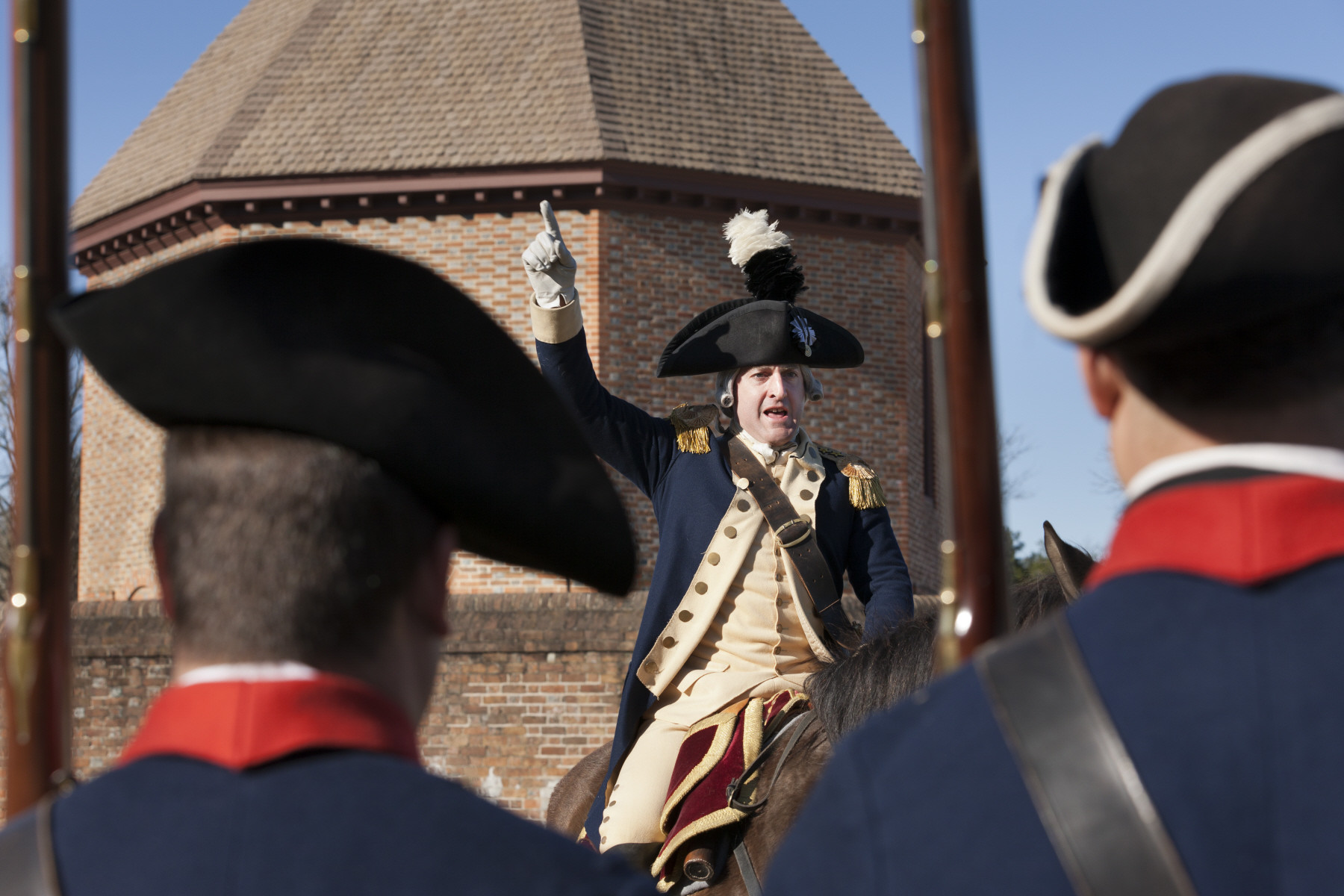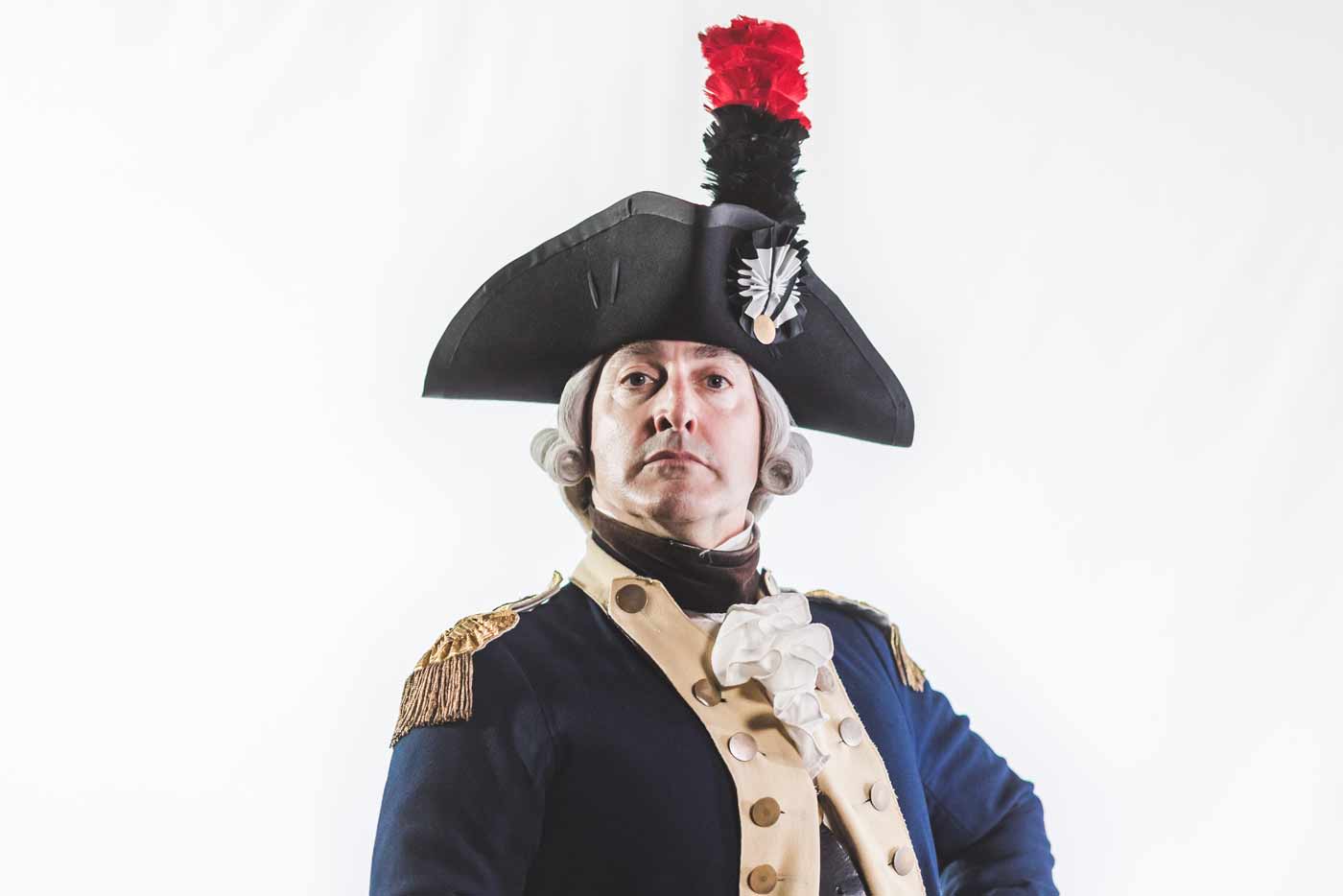
Marquis De Lafayette
Washington’s trusted French officer, Marquis de Lafayette’s tactical skill and help securing French support helped clinch victory at Yorktown.
Scroll to Read
NOBLE BOY FINDS NOBLE CAUSE
Marquis de Lafayette (1757 – 1834) was born in France to a wealthy noble family. When he was two years old, Lafayette's father was killed in battle against the English and as a result, his mother needed to move to Paris. Lafayette’s care fell to his grandmother, whose generosity and altruism influenced the boy’s forming character.
Fueled by lingering French resentment of the British after the Seven Years War and inspired by the noble cause, 19-year-old Lafayette cast his fortunes — both figurative and literal — with the American pursuit of liberty.

BECOMING WASHINGTON’S MAN
After 54 days at sea on his recently purchased ship La Victoire, he volunteered his services to the Continental Army. Though Congress was hesitant, his earnestness, and his assurance that he would serve at his own expense, won him the rank of major general. He quickly fell into the company of George Washington, and the two formed a bond of will and philosophy so strong that Washington came to regard Lafayette as his son, a relationship reciprocated by the young Frenchman.

CRUCIAL TO THE CAUSE
Lafayette was injured in the Battle of Brandywine, but his tactical cunning and fearlessness in battle helped to save the Revolution on many occasions. In 1779, Lafayette returned to France and helped to win formal French support for the American cause. Lafayette came to Williamsburg during preparations for the Virginia Campaign of 1781. At Yorktown, Lafayette helped to corner Britain’s Lord Cornwallis, whose surrender after several days of siege was a fatal blow that ensured the American victory.

AN AMBASSADOR OF HUMAN RIGHTS
After the American Revolution, Lafayette returned to France where his popularity soared as he navigated the tenuous line between the angry subjects and the monarchy. Lafayette authored the celebrated Declaration of the Rights of the Man and of the Citizen, and advocated religious toleration and the end of slavery. When most of Europe declared war against France in 1792, Lafayette commanded a French army in the north, but was taken prisoner by the Austrians and remained with them for nearly five years. Lafayette and his wife Adrienne de Noailles had four children, including a son named Georges Washington. The general died in 1834.
Lafayette Returns
A Celebration for the Frenchman of Our Revolution
On Sunday, October 20th at 1 p.m., the Williamsburg community gathers in the Historic Area to celebrate the 200th anniversary of Lafayette’s triumphant return.
Learn More
Further Reading
Listen to the Ben Franklin's World Podcast
Meet a Nation Builder
-
Film: Williamsburg – The Story of a Patriot
Discover how Virginia’s political leaders—including Henry, Jefferson, and Washington—risked everything for freedom with a resolution for independence in May of 1776.
Open to the Public
-
Special Event: Did You Know? History Game Show
Come on down to the Hennage Auditorium to test your knowledge of history. Expand your mind! Impress your friends! Win a prize! Featuring special guest Thomas Jefferson.
Open to the Public
Event Ticket
-
For Donors: Visit a Nation Builder
Donors who have access to the donor reception center in the St. George Tucker House as part of their giving advantages are invited to meet with a Nation Builder.
Donor Exclusive
Free Event Ticket